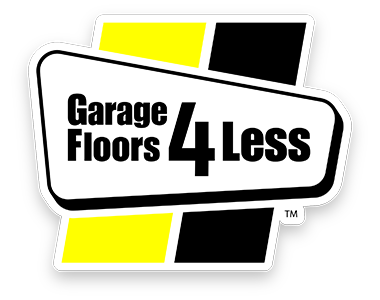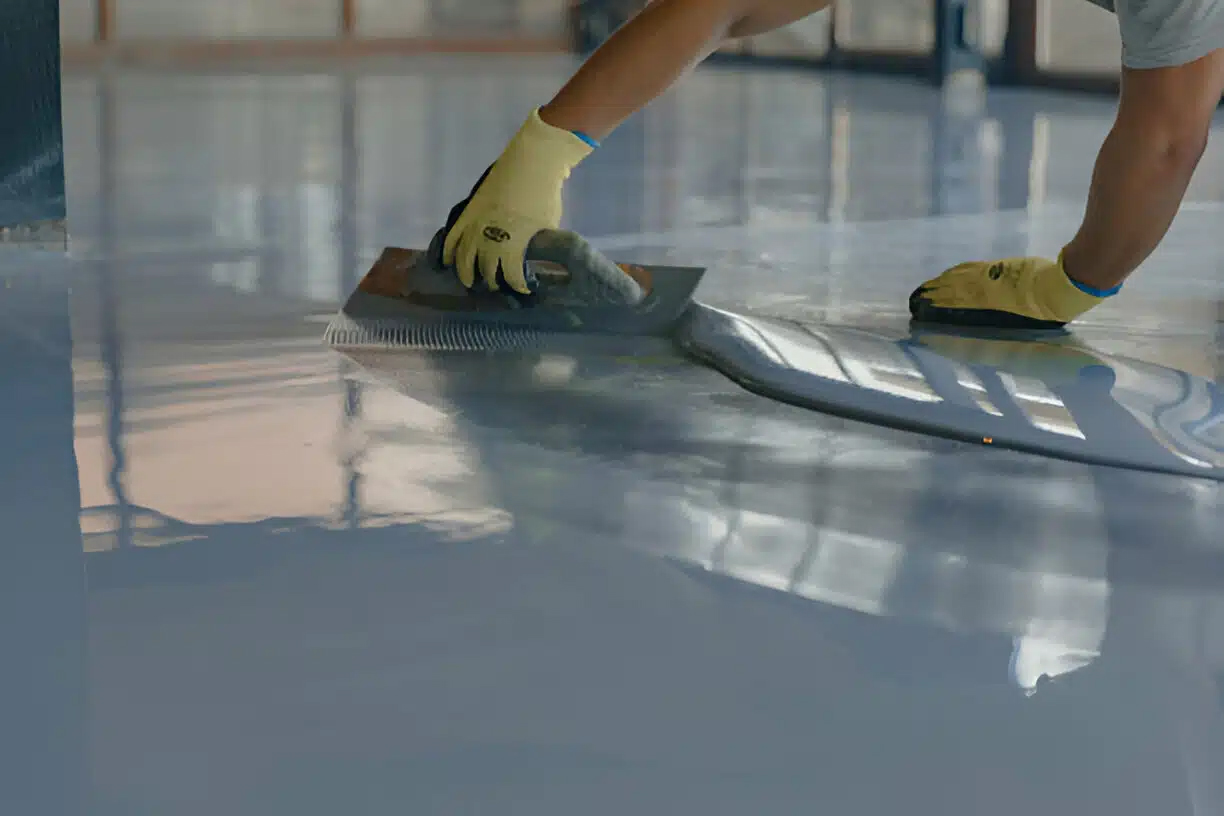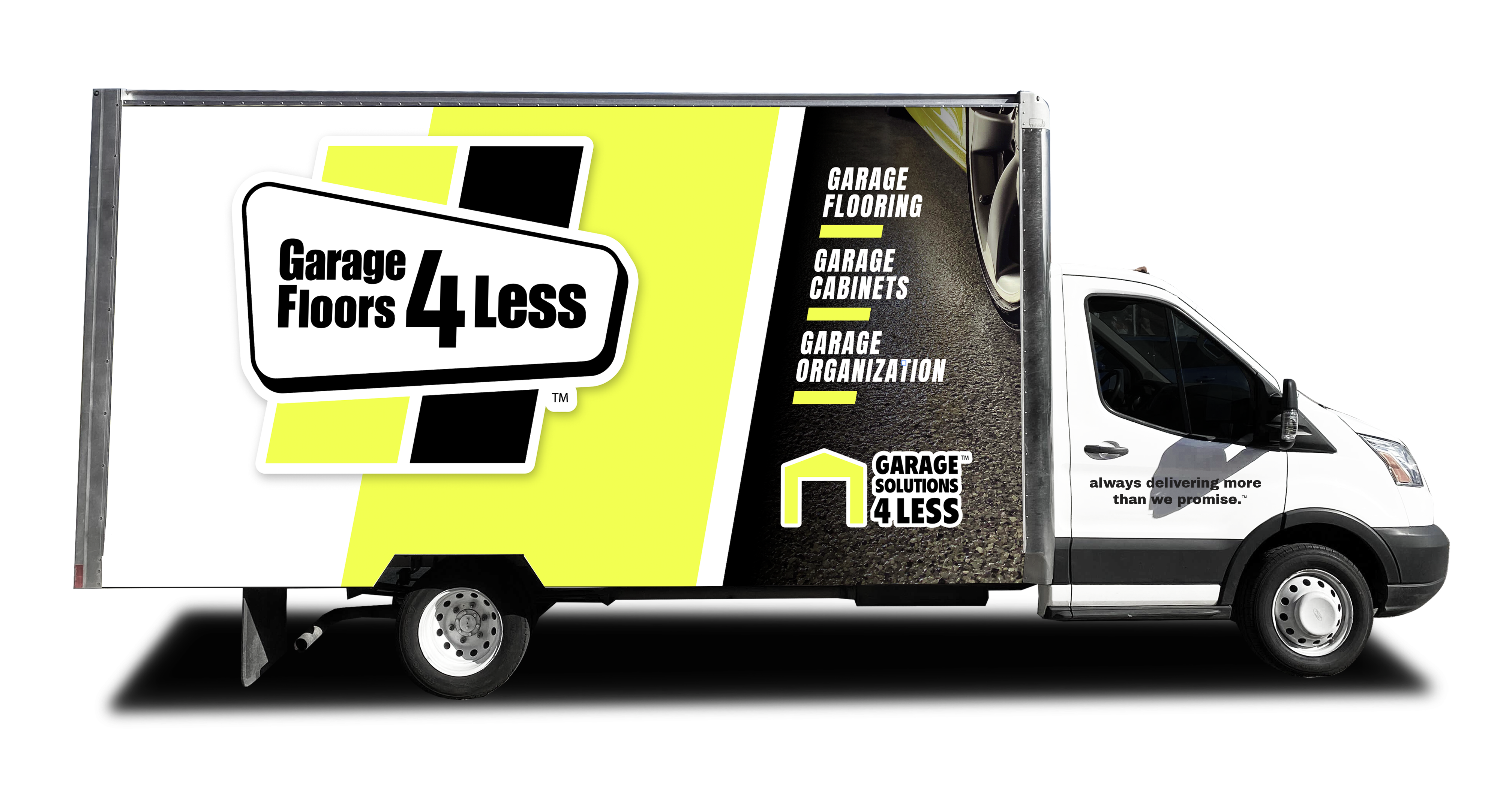Chemical-resistant epoxy flooring has gained immense popularity in both residential and commercial settings due to its remarkable safety features, exceptional durability, effortless cleanliness and maintenance, and unmatched strength surpassing that of ordinary concrete.
Lately, epoxy resin has been generating significant attention, and its appeal is readily apparent. With its robust polymer structure, epoxy exhibits excellent resistance to chemicals and exceptional durability. Consequently, chemical-resistant epoxy flooring is experiencing a surge in popularity for a diverse range of applications on concrete floors.
If you’re seeking compelling reasons to opt for chemical-resistant epoxy flooring for your home or business, look no further. This comprehensive guide will furnish you with all the essential information and address any queries you might come across. Stay tuned to discover the many benefits and advantages of this remarkable flooring solution.
Exploring the Power of Chemical-Resistant Epoxy Flooring
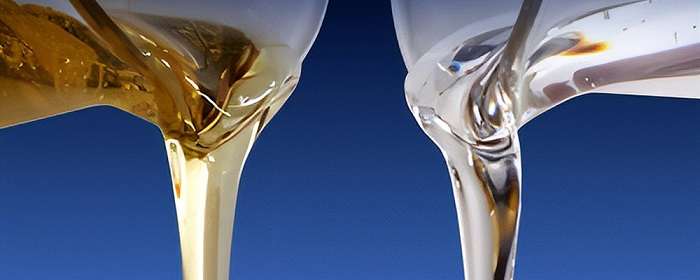
Epoxy, being a polymer, possesses a molecular structure comprised primarily or entirely of numerous similar units bonded together. This distinctive large-scale structure grants epoxy its advantageous qualities, which include:
Chemical Resistance: The application of epoxy to a floor renders it highly resistant to a wide range of chemicals. As a result, concerns regarding spills and messes are alleviated, and cleaning becomes effortless.
Abrasion Resistance: Epoxy exhibits remarkable resistance to abrasion, enabling it to withstand significant wear and tear. This characteristic makes it an ideal choice for areas with heavy foot traffic, where durability is paramount.
Hardness and Stability: Epoxy is known for its exceptional hardness and durability while maintaining remarkable stability. Consequently, it resists chipping, cracking, and peeling over extended periods of time.
These properties position epoxy as a natural and optimal selection for robust flooring in diverse applications, whether within residential or commercial settings.
If you’re considering coating your concrete floors, epoxy resin emerges as an excellent choice. Its acid-resistant properties enable the creation of a robust and durable surface that is highly resistant to chemicals, while also being easy to clean. This makes it particularly well-suited for environments and areas that are prone to spills and leaks, such as garages, workshops, laboratories, commercial kitchens, hospitals, and more.
By applying an acid-resistant epoxy coating, you can ensure a long-lasting and low-maintenance flooring solution that can withstand the challenges of these demanding settings.
The Superior Durability of Chemical-Resistant Epoxy Floor Coating
When embarking on the journey of installing a new floor, conducting thorough research is crucial to finding the perfect option that caters to your specific requirements.
Epoxy flooring stands out among other types of floors on the market due to its remarkable chemical properties, providing enhanced durability. When properly installed, epoxy flooring exhibits exceptional resistance to peeling, flaking, and cracking. Moreover, its resilience extends to heat, as it remains unaffected by high temperatures.
In contrast, alternative flooring materials tend to expand in hot weather and contract in cooler conditions. This repetitive expansion and contraction make these floors prone to cracking, leading to regular maintenance expenses.
Epoxy flooring, however, is designed to excel in both warm and cold climates. It maintains a relatively stable composition, resisting expansion even in scorching heat. As a result, homeowners and businesses can enjoy the benefits of epoxy flooring without concerns about thermal fluctuations. The inherent durability of epoxy translates to fewer expenses for maintenance and repairs over the long term, making it a cost-effective choice.
The Simplicity and Ease of Chemical-Resistant Epoxy Floor Coating Setup
The process of installing an epoxy floor is incredibly straightforward and manageable, making it feasible for DIY enthusiasts. By following a few simple steps, you can utilize epoxy as a chemical-resistant coating over an existing concrete floor. Here’s a brief overview of the preparation process:
Grind or Shot Blast the Surface: To ensure proper adhesion of the epoxy, it’s essential to prepare the surface by either grinding or shot blasting. This process removes any existing coatings, roughens the surface, and creates a suitable profile for the epoxy to bond effectively.
Remove Dust and Particles: Once the surface is prepared, it’s crucial to thoroughly clean it, eliminating any dust, debris, or loose particles. This can be accomplished through sweeping, vacuuming, or using a dust mop to achieve a clean and debris-free surface.
Patch and Repair Cracks: Prior to applying the epoxy, it’s important to address any existing cracks or imperfections in the concrete floor. Using an appropriate patching compound, fill and repair these areas to ensure a smooth and even surface.
Apply a Primer: Applying a primer serves as a crucial step in the epoxy floor installation process. The primer creates a strong bond between the concrete surface and the epoxy coating, enhancing adhesion and overall durability.
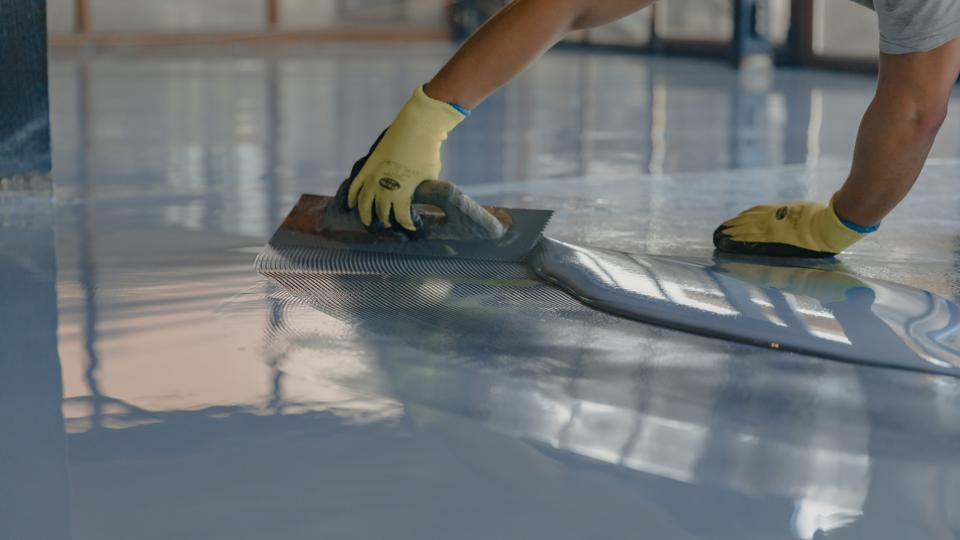
The Impeccable Non-Toxicity of Chemical-Resistant Epoxy Floor Coating
Once epoxy resin is fully cured, it becomes inert, meaning it does not release any chemicals that could potentially impact your health. However, when working with uncured hardeners, it is important to exercise caution and follow basic safety measures to ensure a safe installation process for everyone involved.
To protect yourself from potential fumes during the installation of an epoxy floor, it is advisable to wear high-quality safety goggles and an OSHA-approved respirator. These protective gears help shield your eyes and respiratory system from any airborne particles or fumes that may be emitted during the process.
Furthermore, it is recommended to wear sturdy boots and shoe covers to safeguard your feet from any accidental splashes that may occur while applying the epoxy. This helps prevent direct contact with the liquid material and minimizes the risk of any associated hazards.
The Ease of Cleaning Chemical-Resistant Epoxy Floor Coating
Epoxy flooring boasts exceptional chemical resistance, making it an ideal choice for a wide range of commercial settings, particularly those in the medical and food industries where sterile surfaces are crucial. Its non-porous nature eliminates concerns of dirt and bacteria hiding within cracks, ensuring a clean and hygienic environment.
Epoxy’s robust chemical resistance extends to the ability to withstand the powerful chemicals necessary for surface sterilization. It can endure even the most potent acids and bases without succumbing to damage or degradation. This property makes epoxy flooring highly reliable in environments where stringent cleanliness and disinfection protocols are paramount.
Moreover, epoxy flooring demonstrates impressive resilience against the mechanical stress of routine cleaning procedures. It can withstand the constant use of harsh cleaning chemicals without deteriorating or compromising its structural integrity. This durability provides peace of mind, knowing that the flooring will withstand the rigorous demands of cleaning regimens in commercial settings.
Chemical-Resistant Epoxy Floor Coatings Are Aesthetically Pleasing
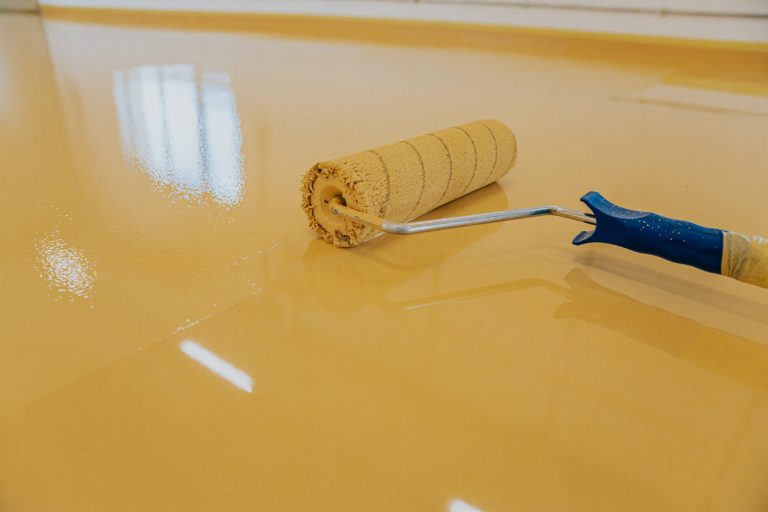
One of the remarkable attributes of epoxy floors is their inherent beauty. The highly reflective surface of epoxy flooring adds a captivating aesthetic to any space, be it a living room or an office. The luminosity it provides can effectively brighten up the environment, creating an inviting and visually appealing atmosphere. With epoxy flooring, your home or business will undoubtedly stand out, leaving a lasting impression on visitors.
Additionally, epoxy flooring offers a high degree of customization, allowing you to tailor the appearance of your floors to suit your unique vision. The design possibilities are virtually endless. You can incorporate pigments in a diverse range of colors, enabling you to achieve a desired hue or create intricate patterns. Moreover, the inclusion of vinyl flakes or even glitter can further personalize the look of your floor, adding a touch of individuality and flair to your space.
Whether you prefer a sleek and sophisticated finish or a vibrant and eye-catching design, epoxy flooring offers the versatility and customization options to bring your vision to life. It serves as a transformative element that enhances the overall aesthetics of your home or business, making it truly stand out among the rest.
Chemical-Resistant Epoxy Floor Coatings Are Cost-Effective
One significant advantage of investing in a high-quality epoxy floor is the potential for long-term cost savings. By opting for a floor that can effectively withstand chemical and acid attacks, you can reap several financial benefits over time.
Firstly, the extended functional life of an epoxy floor translates into reduced maintenance and replacement costs. Epoxy floors are highly durable and resistant to damage, ensuring they can withstand the wear and tear of daily use without requiring frequent repairs or replacements. This results in lower maintenance expenses and minimizes the need for costly floor replacements.
Moreover, the chemical and acid resistance of epoxy flooring prevents the need for constant repairs or replacements due to chemical-induced damage. Traditional flooring materials may deteriorate or degrade when exposed to corrosive substances, leading to additional expenses for repairs or replacement. However, with epoxy flooring’s robust chemical resistance, such issues are minimized, contributing to cost savings.
Additionally, the easy maintenance and cleaning properties of epoxy floors further reduce long-term costs. Their non-porous surface prevents dirt, dust, and bacteria from accumulating, making cleaning a breeze and reducing the need for extensive cleaning products or procedures. This saves both time and money associated with maintenance and cleaning efforts.
Differentiating Acid and Chemical-Resistant Floor Coatings
Correctly determining the appropriate floor protection depends on several factors, including the specific type of chemical or acid, the frequency of contact, the storage containers utilized for the corrosive substances, and the regularity of movement.
Different chemicals and acids have varying levels of corrosiveness and can affect flooring materials differently. It is crucial to identify the exact nature of the substances involved and assess their potential impact on the floor. Some chemicals may require more robust protection, while others may be less corrosive and have a minimal impact.
The frequency of contact is another critical consideration. If the exposure to chemicals or acids is infrequent or occasional, temporary protective measures, such as spill kits or chemical-resistant mats, may be suitable. However, for continuous or frequent contact, a more durable and permanent floor protection solution, such as chemical-resistant coatings or specialized flooring materials, may be necessary.
The method of storage and movement of the corrosive elements also plays a role. If containers are frequently moved around or transferred, the potential for spills or leaks increases, necessitating additional protective measures. Storage practices, including the use of secondary containment systems or spill containment pallets, should be considered to prevent accidental spills from reaching the floor.
Industries That Reap the Rewards of Acid and Chemical Resistant Flooring
Numerous industries benefit from acid and chemical-resistant flooring due to the enhanced protection it provides against corrosive substances. Some of the industries that particularly benefit from acid and chemical-resistant flooring include:
Manufacturing: Industries involved in chemical manufacturing, pharmaceuticals, food processing, and electronics manufacturing require acid and chemical-resistant flooring to safeguard against spills and potential chemical hazards.
Laboratories: Research laboratories, testing facilities, and scientific institutions rely on acid and chemical-resistant flooring to maintain a safe and controlled environment while handling various chemicals and substances.
Warehousing and Distribution: Facilities involved in storing and handling hazardous materials, such as warehouses and distribution centers for chemicals, fuels, or industrial products, greatly benefit from acid and chemical-resistant flooring to prevent damage and contamination.
Automotive and Aerospace: Industries involved in automotive manufacturing, aerospace engineering, and maintenance require acid and chemical-resistant flooring to protect against oil, grease, solvents, and other corrosive substances commonly encountered in their operations.
Healthcare and Pharmaceutical: Hospitals, clinics, pharmaceutical manufacturing plants, and research facilities prioritize acid and chemical-resistant flooring to ensure a clean and sterile environment while dealing with potentially hazardous chemicals and biological agents.
Food and Beverage: Food processing plants, commercial kitchens, breweries, wineries, and other food and beverage production facilities rely on acid and chemical-resistant flooring to maintain hygienic conditions and protect against corrosive substances used in cleaning and processing.
Chemical Storage and Handling: Facilities dedicated to storing and handling chemicals, such as chemical storage warehouses, chemical plants, and refineries, require acid and chemical-resistant flooring to mitigate the risks associated with spills and leaks.
Battery Manufacturing: Battery manufacturing facilities, including those producing automotive batteries or industrial batteries, benefit from acid and chemical-resistant flooring to safeguard against corrosive battery acids and electrolytes.
These are just a few examples, but any industry that deals with chemicals, corrosive substances, or hazardous materials can benefit from acid and chemical-resistant flooring to ensure safety, durability, and ease of maintenance.
Epoxy Flooring From Garage Floors 4 Less

For businesses seeking a reliable and cost-effective protective floor coating solution, we recommend reaching out to our dedicated team at Garage Floors 4 Less. With our extensive experience and commitment to excellence, we have established ourselves as a leader in providing complete floor protection and safety systems.
Our team possesses the expertise and knowledge to deliver long-lasting and high-quality results tailored to your specific needs. We understand the importance of durable and efficient floor coatings for various industries, and we take pride in offering comprehensive end-to-end surface protection solutions.
Whether you require floor coatings for commercial or industrial operations, we have the capabilities to meet your requirements. We prioritize workmanship and service excellence, ensuring that our customers receive the utmost satisfaction with our work. We are dedicated to delivering long-lasting, cost-effective solutions that provide reliable floor protection for years to come.
Additionally, we also extend our services to residential properties, offering garage floor coatings that enhance both the appearance and functionality of residential spaces.
When it comes to protecting your floors and creating a safe and durable environment, Garage Floors 4 Less is your trusted partner. Contact our friendly team today to discuss your needs and benefit from our expertise in floor protection solutions.
